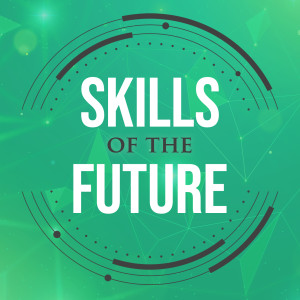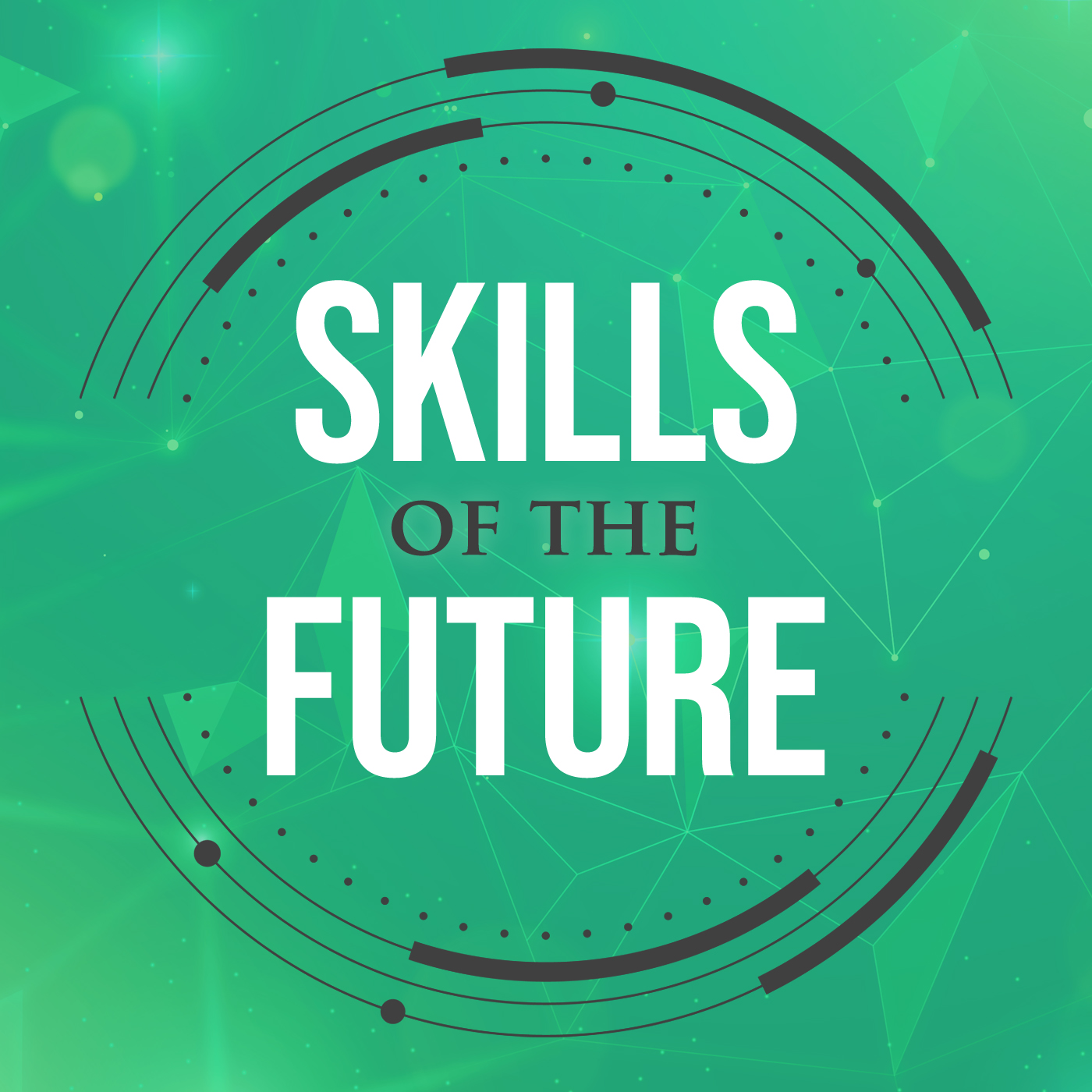Episodes

Wednesday Jan 26, 2022
The Employee Journey: Learning Moments of Truth - with Jan Johnson
Wednesday Jan 26, 2022
Wednesday Jan 26, 2022
In this episode, Andrea Butler interviews Jan Johnson about the employee journey and learning moments of truth.
The key takeaways from this episode:
- When looking at journey mapping in general, there are key events or key touchpoints when people form an opinion about a brand. We can make similar parallels with employees and their journeys within a company. There are key moments of truth when employees form an impression about the company and its value proposition. One key touchpoint is on-the-job learning.
- One useful L&D strategy is peer-to-peer learning. Organizations can encourage networking groups that can link people together who perform similar jobs and can learn from each other.

Wednesday Jan 19, 2022
Applying Skills and Competencies to Career Pathing - with Amanda Small
Wednesday Jan 19, 2022
Wednesday Jan 19, 2022
In this episode, Dan van der Werf interviews Amanda Small about applying skills and competencies to career pathing.
The key takeaway from this episode:
- There is a need to cultivate and support a culture of feedback. Having meaningful conversations to help employees see how they can impact the future state of the business. Using core competencies that are clearly linked to the vision and values of the organization can be a helpful tool to guide these sorts of conversations.
- Competencies that are important across the board right now, particularly in the start-up space are creativity, resilience, and accountability.
- People will leave companies if they are not provided opportunities to hone their skills and grow their careers.

Wednesday Jan 12, 2022
The Great Resignation and Employee Retention - with Brandi Stockman
Wednesday Jan 12, 2022
Wednesday Jan 12, 2022
In this episode, Andrea Butler interviews Brandi Stockman about the great resignation and ways to improve employee retention.
The key takeaways from this episode:
- Enabling leaders to lead with empathy and compassion is so important for employee retention.
- Bring relevant retention data to the table to help drive retention initiatives. Data could include things like voluntary resignations, reasons behind resignations, resignation trends, or the use and uptake of employee programs. All this data tells a story and can lead you to an area that you need to focus on to improve the employee experience and ideally increase retention.

Wednesday Jan 05, 2022
Applying Skills and Competencies to Talent Development - with Shrutee Sehajpaul
Wednesday Jan 05, 2022
Wednesday Jan 05, 2022
In this episode, Andrea Butler interviews Shrutee Sehajpaul about applying skills and competencies to talent development.
The key takeaways from this episode:
- The future of successful learning programs needs innovative and employee-centric solutions that are tailored to the unique needs of each learner.
- Three skills that are critical for all employees to develop right now are a growth mindset, navigating ambiguity, and digital fluency.

Tuesday Dec 14, 2021
Applying Skills and Competencies to the Talent Lifecycle - with Mark Kaestner
Tuesday Dec 14, 2021
Tuesday Dec 14, 2021
In this episode, Dan van der Werf interviews Mark Kaestner about applying skills and competencies to the talent lifecycle.
The key takeaway from this episode:
- Having a strong Employee Value Proposition is critical right now to attract and hire good talent.
- Behavioral-based interviewing is a great way to assess candidates’ skills when hiring. When using these types of interview questions, it is important to use a Behaviorally Anchored Rating Scale (i.e., the most objective, fair, and accurate rating scale).
- Skill development is not one size fits all, and it’s important to have a learning strategy that can tailor and personalize learning plans for each employee. Also, career development does not equal career progression. Some people want to grow in the role they are in and do not aspire to move into other roles, and that’s okay.

Tuesday Dec 07, 2021
Developing and Maintaining Organizational Culture - with Pam McCartney
Tuesday Dec 07, 2021
Tuesday Dec 07, 2021
In this episode, Andrea Butler interviews Pam McCartney about developing and maintaining organisational culture. Pam leads the Human Resources team at The Green Organic Dutchman (T…GOD) Inc.
Key takeaways from this episode:
- One challenge with developing culture is ensuring that owners and senior leaders are bought into the culture. Without their support, moving the needle on culture is impossible.
- Another challenge is maintaining culture with a remote workforce. One strategy is to focus on employee mental health and ensure leaders check in on employees regularly.
-
Trust, respect, and empathy are critical individual competencies that can help to support and maintain a strong organizational culture.

Thursday Dec 02, 2021
Applying Skills and Competencies to Talent Acquisition - with Paul Cameron
Thursday Dec 02, 2021
Thursday Dec 02, 2021
In this episode, Dan van der Werf interviews Paul Cameron about applying skills and competencies to talent acquisition.
The key takeaway from this episode:
- Focus on the recruiter experience, and the by-product will be a good hiring manager experience and a good candidate experience.
- One challenge with recruitment is that organizations want to reduce the time to fill, increase the quality of hires, and increase the diversity of candidates. It’s impossible to have all three. For example, ensuring diversity and high-quality candidates will take time.
- Three universal attributes that high-quality candidates possess are curiosity, grit, and tenacity.

Monday Nov 22, 2021
Applying Skills and Competencies to the Talent Lifecycle - with Adam Raya
Monday Nov 22, 2021
Monday Nov 22, 2021
In this episode, Dan van der Werf interviews Adam Raya about applying skills and competencies to hiring, onboarding, and performance management.
The key takeaway from this episode:
-
Employer branding and having a strong employee value proposition is very important for recruitment and selection, particularly given the fierce competition for talent right now.
-
Three key competencies that are critical for any role are minimum technical ability, engagement, and ethics. These types of competencies can be measured during the selection process using a variety of tools, such as work samples or validated psychometric assessments.
-
After you make the offer, have a clear onboarding plan to get new hires up to speed as quickly as possible.

Wednesday Nov 17, 2021
Wednesday Nov 17, 2021
In this episode, Dan van der Werf interviews Sarah Blackmore about applying skills and competencies to performance management and career development.
The key takeaway from this episode:
-
When it comes to employee development and career pathing, the employee should own their own development and career path, but the organization and managers need to ensure resources and supports are in place for the employee to do that.
-
There is a legacy negative perception of performance management (think the lengthy yearly review). there is a need to change the language around performance management, and reframe it as being about career development, and do check-ins, and goal setting, rather than “managing your performance."
-
Use behavioural competencies to clearly define what’s expected of people and be completely transparent so that everyone has access to the requirements for all roles. If people want to grow and develop their careers, they should know what is required for their current role and any roles they aspire to be in.

Wednesday Nov 03, 2021
Applying Skills and Competencies to Performance Management - with Jenna Decker
Wednesday Nov 03, 2021
Wednesday Nov 03, 2021
In this episode, Andrea Butler interviews Jenna Decker about applying skills and competencies to performance management.
The key takeaway from this episode:
-
Two skills that are critical right now for employees and for organizations are resilience and adaptability. As people navigate through these unprecedented times, they need the tools and skills to adapt. Organizations can help by putting some of those tools in the toolbelt for employees. These tools could include things like employee assistance programs, mental health initiatives, or increased communication from senior leaders.

